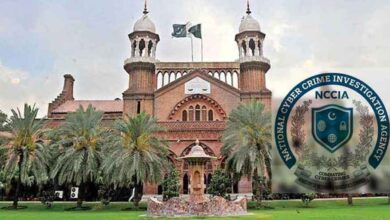SIALKOT: Defence Minister Khawaja Asif on Thursday conceded the rampant corruption plaguing Pakistan, saying that the country is suffering from a disease of corruption, which has become a major obstacle to progress.
In a scathing address to industrialists at the Sialkot Chamber of Commerce and Industry, Khawaja Asif said that even a 50 percent reduction in corruption would eliminate the need for International Monetary Fund (IMF) assistance to Pakistan.
The defence minister lamented that corruption has become so entrenched that customs collectors brazenly accept bribes of 400 to 500 million rupees.
Khawja Asif also expressed concern over the lack of distinction between halal and haram. Quoting former Punjab Chief Minister Pervaiz Elahi, the defence minister cited a happening where a bureaucrat earned Rs 4 billion from ‘Salami’ of a wedding reception.
“Corruption is eating away our country like termites,” Khawaja Asif said.
Speaking on the recent reduction in the policy rate, he said that Pakistan slashed the rate by nine percent in few month. The defene minister also stressed the need for stability within the country, highlighting the success of private sector partnerships in establishing airports and airlines.
Transparency International’s 2023 Corruption Perceptions Index ranked Pakistan with a score of 29, indicating a high level of corruption.
Earlier a report by an inspection team formed by Sindh Chief Minister Syed Murad Ali Shah revealed that Rs 3.22 billion worth of wheat ‘disappeared’ after floods in 2022.
According to the details, a 205-page report has been leaked which revealed that following the terrible floods of 2022, the officials of the Sindh Food Department mixed 379,000 sacks of substandard wheat with dirt. This resulted in an astounding loss of almost Rs3. 22 billion to the public treasury.
The report held concerned officials responsible for the negligence that led to Rs 3.22 billion worth of wheat damage. The inquiry committee examined wheat storage facilities in 14 districts across Sindh province.











